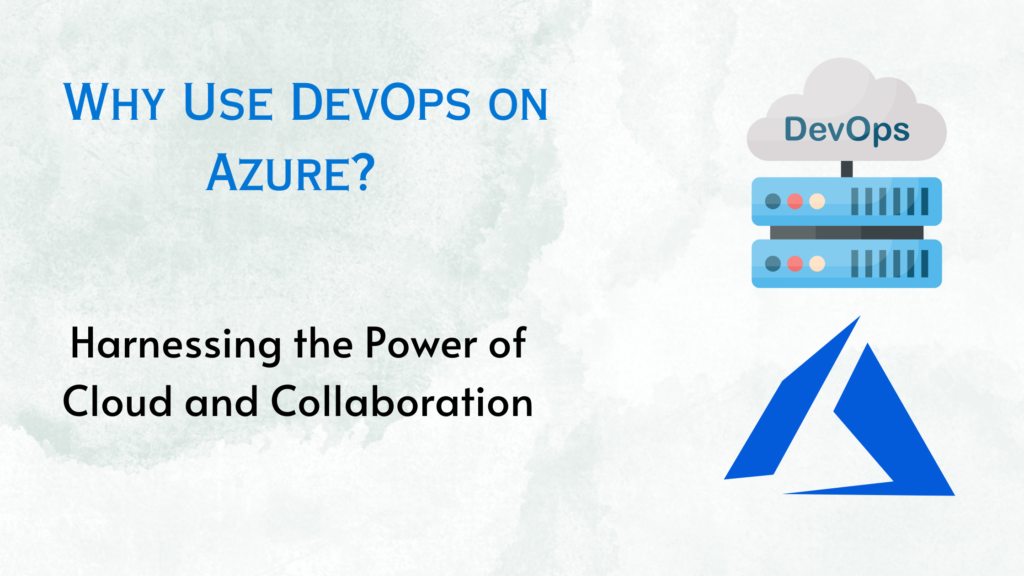Why Use DevOps on Azure?

Accelerating Software Delivery: The Benefits of Using DevOps on Azure
Introduction:
In today’s fast-paced digital landscape, businesses are constantly seeking ways to optimize their software development and delivery processes. One approach that has gained significant popularity is DevOps, a set of practices that combines software development (Dev) and IT operations (Ops) to streamline the entire software development lifecycle. When it comes to implementing DevOps, Azure, Microsoft’s cloud computing platform, offers a compelling environment with a range of tools and services that can greatly enhance the effectiveness and efficiency of DevOps practices. In this blog post, we’ll explore the reasons why using DevOps on Azure can be a game-changer for your organization.
Seamless Integration:
Azure provides seamless integration with popular DevOps tools and frameworks such as Azure DevOps, GitHub, and Jenkins. This integration allows for the smooth flow of code, builds, and deployments across different stages of the software development lifecycle, enabling teams to collaborate effectively and accelerate the delivery of high-quality software.
Scalability and Flexibility:
Azure’s cloud infrastructure offers unparalleled scalability and flexibility, allowing development teams to easily provision resources, automate infrastructure deployment, and scale applications as needed. With Azure’s robust set of services, developers can focus on building and shipping code without worrying about managing underlying infrastructure, resulting in faster time-to-market and improved agility.
Continuous Integration and Continuous Delivery (CI/CD):
DevOps emphasizes continuous integration and continuous delivery, enabling organizations to automate the process of building, testing, and deploying software. Azure provides a rich set of tools and services, such as Azure Pipelines, that facilitate CI/CD pipelines, allowing teams to automate code integration, testing, and deployment to multiple environments. This automation significantly reduces manual errors, speeds up the release cycle, and ensures reliable software delivery.
Infrastructure as Code (IaC):
Azure’s infrastructure as code capabilities, coupled with tools like Azure Resource Manager (ARM) templates and Azure Automation, enable teams to define and manage infrastructure using code. This approach brings consistency, repeatability, and version control to infrastructure provisioning, making it easier to manage complex environments and promote collaboration between development and operations teams.
Monitoring and Analytics:
Azure offers robust monitoring and analytics capabilities that provide real-time insights into application performance, usage, and health. By leveraging services like Azure Monitor and Azure Application Insights, organizations can proactively identify issues, optimize application performance, and make data-driven decisions for continuous improvement.
Security and Compliance:
Azure is built with a strong focus on security and compliance. It offers a wide range of security controls, encryption options, and compliance certifications to ensure the protection of your data and meet regulatory requirements. By using Azure for your DevOps workflows, you can leverage these built-in security features, reducing the risk of data breaches and ensuring the integrity of your software.
Conclusion:
Adopting DevOps practices on Azure empowers organizations to modernize their software development processes, improve collaboration, accelerate time-to-market, and enhance overall efficiency. With its extensive set of tools, scalability, flexibility, and robust security features, Azure provides a comprehensive platform for successful DevOps implementation. By harnessing the power of cloud computing and collaboration, businesses can stay ahead in the competitive digital landscape and deliver high-quality software at a rapid pace.

Leave a Reply